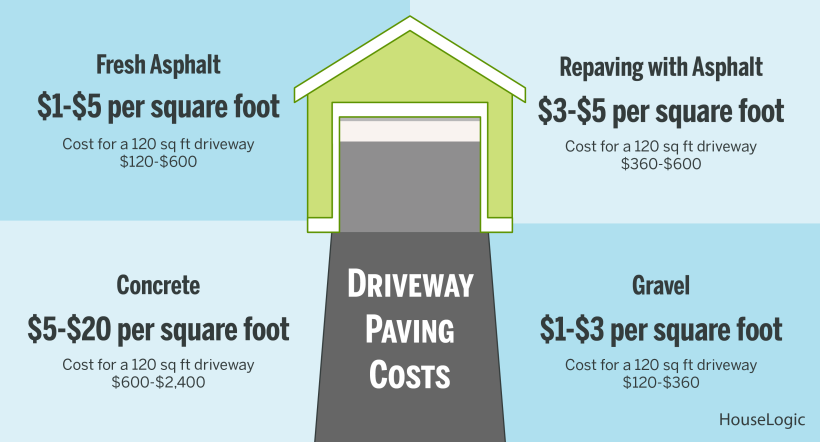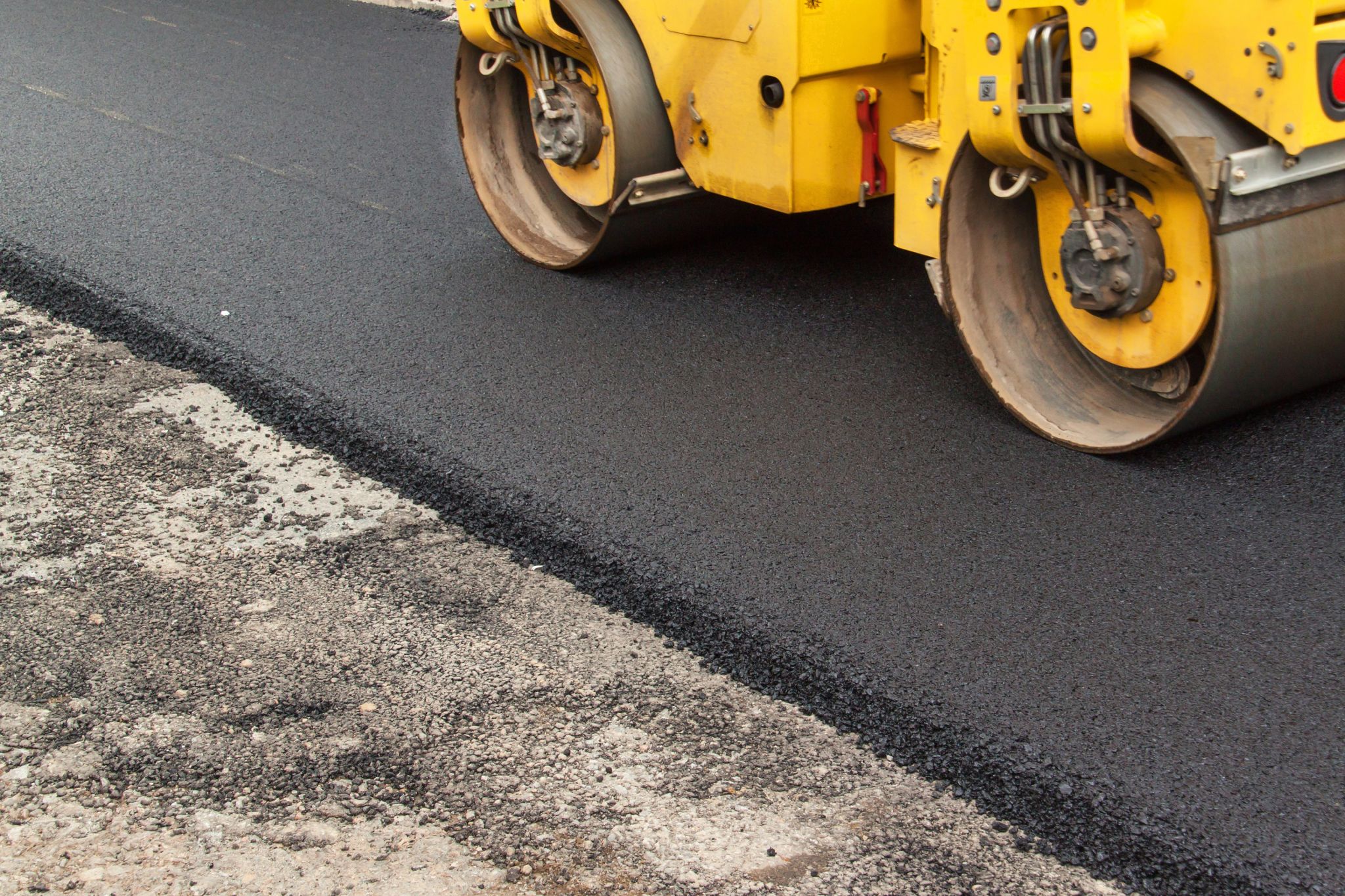An unpaved or unrepaired driveway is bad in so many ways. It not only can damage your car’s suspension and tires, but also regularly give you bumpy — though thankfully short — rides every time you come and go. That's where the asphalt driveway option comes in.
The paving or repaving process isn’t always straightforward, though. Will you need help? Will your homeowners association approve? And most importantly, how much will it cost?
Those potholes won’t fix themselves, so let’s look at some of the costs to pave a new driveway or repave an old one.
Calculate Asphalt Paving Cost by Driveway Length
Asphalt and paving prices are usually calculated by the square foot, so, the length of your driveway plays a big role in the price.
A standard driveway measures around 10 square feet by 12 square feet, but this number can vary depending on the size of the home and the neighborhood.
Although your driveway’s length will be the biggest factor affecting cost, this cost can vary according to the project and material used.
Repaving
An unfinished or poorly maintained driveway will need to be repaved for convenience and appearance. On average, repaving a driveway costs $3 to $5 per square foot.
Fresh Asphalt
Fresh asphalt is known for durability and affordability. It costs $1 to $5 per square foot depending on your location and the type and quality of asphalt.
Alternate Materials
If asphalt doesn’t suit you, you might consider gravel, which costs $1to $3 per square foot. Or, if you want a more expensive but high-quality option, you could think about concrete. Concrete driveway costs vary depending on the amount you lay, but they can range from $5 to $20 per square foot.

These costs should give you an idea of what you’ll pay to pave your driveway, but you also need to look at some external factors that will affect your long-term cost.
Consider Upgrades and Maintenance
Many homeowners will consider adding space to their driveway, but some will want to just upgrade their current one.
Certain elements will affect how much these upgrades cost. For example, many new driveways will need trees or stumps removed, which can add to your bill. Additionally, you may want to install a gate to keep your new driveway more secure, which can also add to the cost.
Once you’ve worked these outside factors into your budget, you’ll still have to consider maintenance costs. While an asphalt driveway is durable, you’ll want to landscape around it to prevent clutter and debris from damaging your vehicles. These types of costs will add up long-term, but avoiding problems can help delay your next paving project.
Alternatives to an Asphalt Driveway
If you’re considering gravel or cement, these two materials can be split into several types with varying costs.
For instance, stamped concrete, which mimics cobblestone, costs a bit more than poured concrete. But with both choices, you’re using an extremely durable, long-lasting material.
Gravel is a cheaper option than concrete, but different types of gravel, such as pea gravel or crushed stone, will have different costs and maintenance requirements, so research these materials before you go with them.
Pros and Cons of Asphalt Driveways
You may still be wondering whether an asphalt driveway is the right choice for you. Here are a few more upsides and downsides:
Pros
Asphalt is durable and easy to maintain. You’ll find an asphalt driveway will last 20 to 30 years. Its low maintenance and relatively low cost are also valuable benefits.
While you may think of asphalt as a boring update without any style options, there are several great design ideas for asphalt, including attractive colors and stamping that can give your driveway a sharp, fresh look.
Cons
Unfortunately, an asphalt driveway is not well-suited to hot weather, and it can dry or crack if you live in a warmer region.
You’ll also need to ensure your driveway has proper drainage, because asphalt can easily swell or crumble, causing permanent damage.
If you want to look further into asphalt, let’s explore talking to and hiring a contractor.
Questions to Ask Driveway Contractors
The first question to ask a contractor is whether they have the right experience for paving a driveway. Don’t forget that your REALTOR® can provide a list of experts ready to handle the job.
Next, talk to the contactor about the overall cost of equipment, labor, and other materials. If your driveway needs tree removal, drainage, or landscaping, be clear about these expectations with your contractor before getting started.
You probably know whether your driveway needs some help, but how to get what you want and stick to your budget may be less clear. By considering the options and costs, you’ll add functionality and curb appeal to your home.
